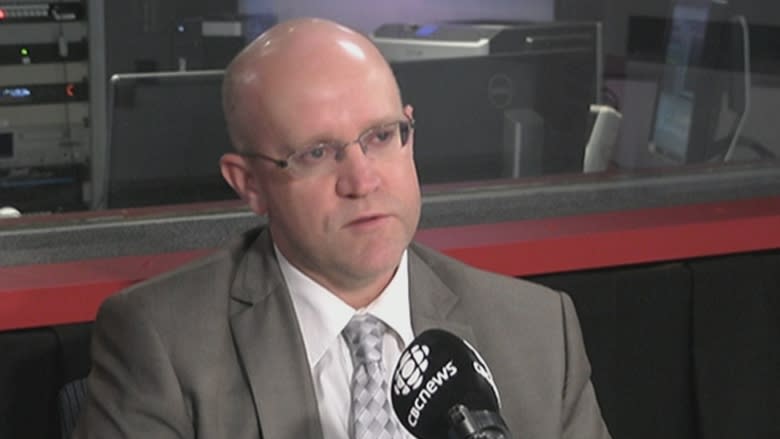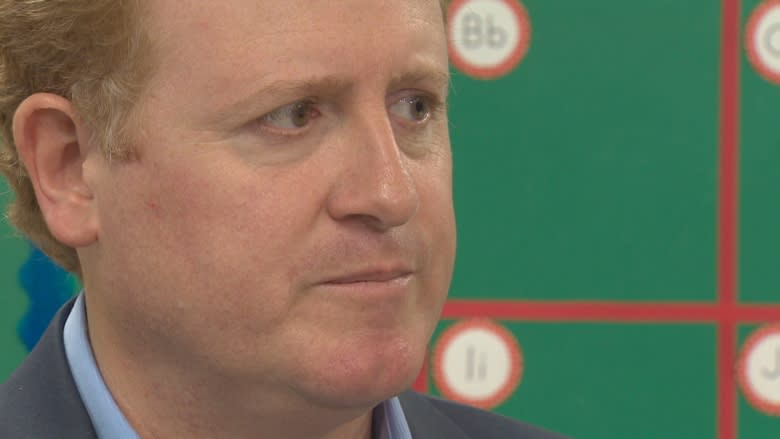College calls for using private psychologists in schools to reduce waits
The College of Psychologists of New Brunswick says a lack of school psychologists is a growing crisis, and it's pushing the province to bring more private psychologists into the school system — at least until the shortage is solved.
In a recent discussion paper, the college proposed that private psychologists on temporary contracts complete assessments that students now wait three years to get.
"Our hope is … we can improve recruitment, improve working conditions and retention and make sure we have psychologists on an ongoing long-term basis to continue doing these assessments," said Angela Burbridge, a licensed psychologist in Saint John.
- Psychologists prefer not to work in New Brunswick schools, groups say
- Education minister downplays shortage of school psychologists
The paper, "Increasing the odds: A plan to accelerate the diagnosis and treatment of learning disabilities in New Brunswick," says that more than 4,700 students in the New Brunswick school system might meet criteria for a learning disability, and there are an additional 350 cases a year.
"We currently have this backlog of kids who haven't had these assessments, we have more kids coming in that need the assessment, and the current system can't possibly keep up with demand," said Burbridge, also chair of the professional affairs committee with The College of Psychologists of New Brunswick.
"It comes back to the unfilled positions that we have."
But clearing the backlog of assessments would cost between $200,000 and $400,000 per region — $2 million for the province.
Burbridge said there is also a high cost to not doing the assessments.
"If people are under-employed, if people are unemployed … we know there's a huge cost, literally billions of dollars spent on mental health."
The Department of Education funds 26 full-time equivalent positions in the anglophone school sector but only nine of those positions are filled.
"We need more psychologists, we're seeing a lot of challenges with students, a lot of complex needs," said Zoë Watson, superintendent of the Anglophone South School District, who has two psychologists to serve the entire district.
"We do feel the absence of the psychologists and the specialized training that they have."
Consequences of shortage
In the francophone sector, 21 out of the 29 full-time equivalent positions are filled.
Some parents are resorting to the private sector for help for their children, but this can be expensive.
- Banned from regular school life, boy with autism asks: 'When am I going to see kids?'
- Is the public school system working for kids with special needs?
"Quite frankly, not a lot of families can afford it," Burbridge said.
And there are many consequences to putting a child on a three-year waiting list, she said.
"Think about a child in Grade 3 who is struggling in school and they're not learning and they're getting frustrated," she said. "It's impacting their self-esteem … there's higher rates of depression, anxiety … inappropriate behaviour at school, they're at increased risk for drop out.
"The outcomes of these assessments can literally change the child's entire life."
Early diagnosis required
The earlier that children can be assessed, the better off they are in school and later on.
She's assessed adults who struggled their entire academic careers, suffered low self-esteem, dropped out of school and been under-employed later in life.
"They're being diagnosed with a learning disability and it is just life-changing for them," she said. "They always thought they were just stupid … when actually their brain is just wired differently."
Often, psychologists leave the school system because of working conditions and pay equity. Some simply go to school systems in other provinces, Burbridge said.
Province at disadvantage
"A school psychologist in Moncton makes much less than a school psychologist in Nova Scotia," she said.
"Where our provinces are so close, sometimes it's just a short drive and you can work in Nova Scotia and have better pay, have better working conditions, maybe have more time off in summers."
In March, George Daley, president of the New Brunswick Teachers' Association, called the lack of school psychologists a "dire situation."
The president of the teachers union said his research found that psychologists were handling anywhere from 2,500 to 7,800 cases each, far from a ratio of one school psychologist for every 1,000 students, which is recommended by the National Association of School Psychologists.
Psychologists a 'big priority'
In an interview with CBC News early this month, Education Minister Brian Kenny said that hiring enough psychologists is a "very big priority" for his department.
The minister acknowledged the wage differences compared to other provinces but he would not say what the province will do about the gaps.
"Yes there is a room for improvement and there is a discrepancy there, but we are working towards trying to find a solution," he said.
CBC News has asked the province for comment on the college's proposal.



